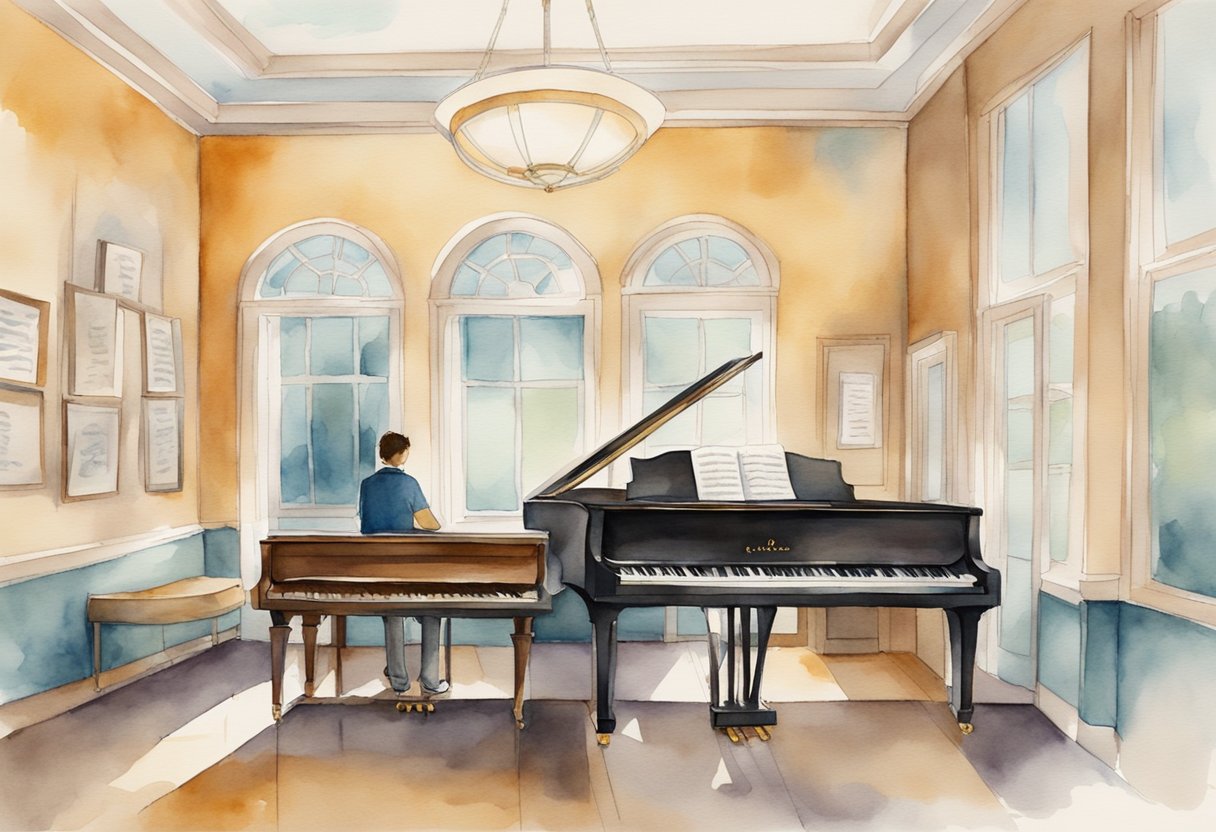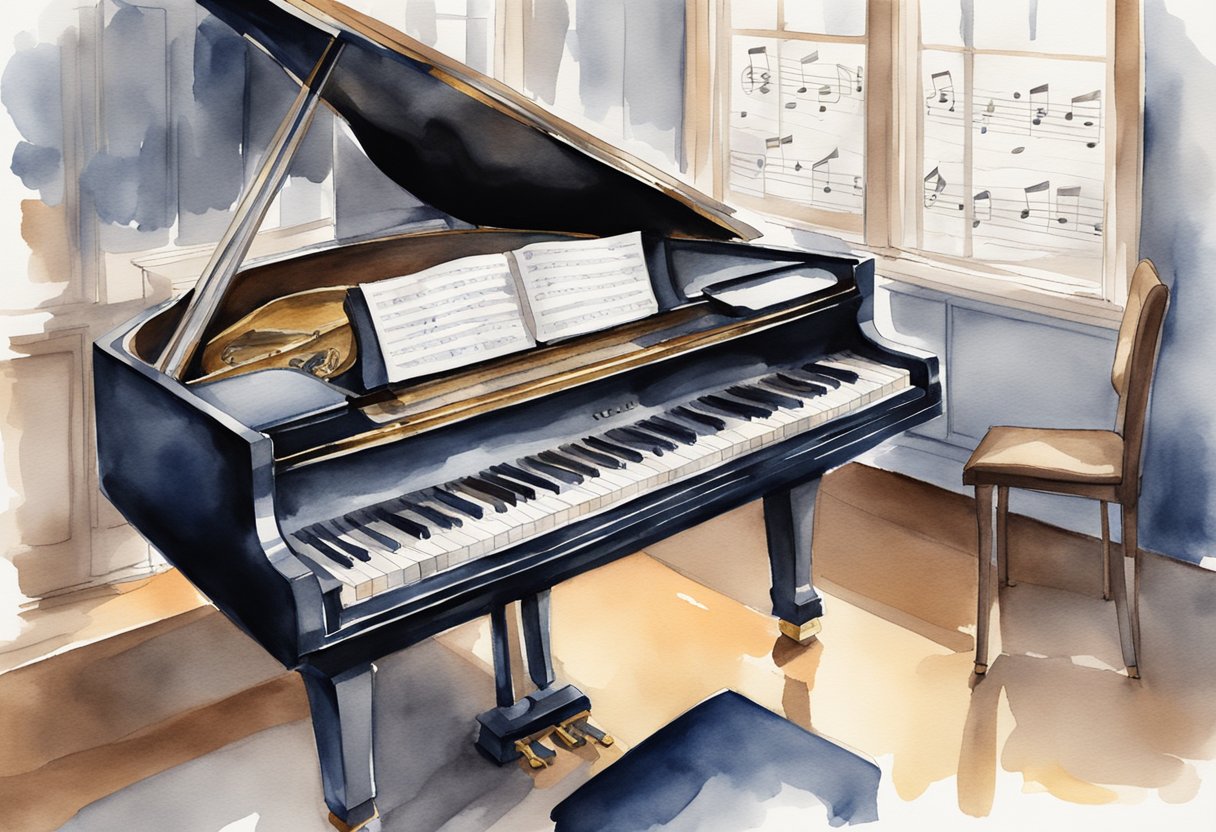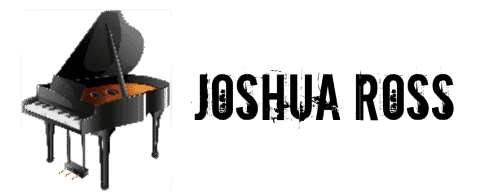As an Amazon Associate I earn from qualifying purchases.
Piano exams are not strictly necessary, but they serve as a useful benchmark for gauging your progress. For instance, when you accomplish a certain grade in a piano exam, it’s a clear indication that you’ve reached a level of proficiency associated with that grade, providing a sense of achievement and motivation.
I remember the thrill of passing my local music exam as a kid, and how it validated the hours of practice I had invested.
Want to Learn Piano?Click Here

Yet, it’s essential to consider that piano exams can add unnecessary stress for some learners, particularly if they are not serious about their piano studies and being forced to practice.
The structured nature of exams, often focusing on a set repertoire, can sometimes overshadow the joy of learning and playing music that speaks to you personally. In my teaching experience, I’ve seen students breathe easier when they learn pieces they love, rather than those mandated by an exam syllabus.
Ultimately, your journey with the piano is deeply personal, and it should align with your goals and enjoyment. Whether you’re driven by structured goals and formal recognition like grade exams or you prefer a self-paced, exploratory approach to learning, the key is to ensure that your piano practice continues to inspire and engage you.
The Role and Purpose of Piano Exams

Piano exams are not just a test; they are a comprehensive measure of your musical journey, marking achievements and setting a clear path for future growth.
Evaluating Progress and Setting Goals
As you delve into the realm of piano learning, it’s essential to have a marker of your progress. Piano exams represent tangible goals for you to strive towards.
During the preparation period, you’re not just playing; you’re critically assessing your growth and setting clear objectives. This ongoing process helps you identify areas that need improvement and keeps you engaged with a structured curriculum.
Standardizing Musical Knowledge and Technique
What exactly does it mean to be at a Grade 5 level? Well, that’s where an exam board’s syllabus comes into play. It sets a standardized benchmark for musical knowledge and technical work.
Achieving each grade signifies that you possess a specific set of skills, whether it’s mastering complex scales or understanding general music knowledge. These standards are recognized worldwide, giving you a sense of where you stand globally.
Recognizing Achievement with Certificates and Diplomas
There’s nothing like the sense of accomplishment you get when you pass a piano exam. Not only do you feel a boost in confidence, but you also receive a certificate or diploma that’s a testament to your hard work.
This recognition can serve as a strong motivator, propelling you toward new challenges and heights in both educational and performance settings. It’s a physical reminder of your progression and success.
Piano exams provide structure, challenge you to set and achieve goals, and encourage a disciplined approach to your playing.
Through this rigorous preparation, you refine not only your technique but also your understanding of the music, leading to a well-rounded ability to express yourself through the piano.
Preparing for and Taking Piano Exams
When you’re gearing up to take piano exams, the right preparation can make all the difference. You’ll need to blend consistent practice with a deep understanding of the exam requirements, all while managing nerves to perform your best.
Practice Techniques and Repertoire Selection
Effective practice is key to success in piano exams. As you select your repertoire, choose pieces that challenge you but also showcase your strengths. It’s not just about learning the notes; understand the musical knowledge required for each piece.
Regularly practice scales, arpeggios, and sight-reading to cover the technical exercises of exams like those from Trinity College London or ABRSM. Dedication to practicing various piano techniques will ensure readiness for both the practical and theoretical aspects of the exam.
- Scales: Aim for clarity and evenness.
- Arpeggios: Work on smoothness and accuracy.
- Sight-reading: Include this in your daily practice routine.
Understanding the Exam Syllabus and Requirements
Dive into the exam syllabus from your chosen examination board, such as RCM or AMEB. Understanding the expectations and feedback criteria from examiners is crucial.
If you’re an adult student or preparing younger students, notice that different stages demand different aural skills and theory knowledge. Many teachers also recommend that you familiarize yourself with past comments to better understand what will be expected of you.
- Look at past exam feedback for insight.
- Check for pieces that may require improvisation.
Overcoming Performance Anxiety and Building Confidence
Dealing with performance anxiety is a common challenge. A positive attitude can transform anxiety into excitement. Leading up to exam day, simulate the exam conditions by organizing mini-concerts for your family or friends.
Rest well, taking breaks as needed, because consistent rest helps consolidate learning. Hard work and a confident approach will reflect in your performance, and remember to enjoy the journey. Enjoyment is a great benefit that should not be overshadowed by the exam itself.
- Practice regularly in exam-like conditions to build comfort.
- Prioritize rest to help manage stress.
By focusing on practice techniques, understanding the syllabus requirements, and maximizing your confidence, you’re setting a strong foundation for not just passing, but excelling in your piano exams.
Which Piano Exams Are Worth Your Time
When you’re considering testing your piano skills through formal examinations, there are several well-regarded options to choose from. The Royal Conservatory of Music (RCM), the Piano Guild, and the London College of Music Exams (LCME) are among the most esteemed.
Royal Conservatory of Music (RCM): Known for its comprehensive curriculum, the RCM offers a series of graded exams that assess technical skills, repertoire performance, ear training, and sight reading. Suitable for all ages, the RCM exams are structured to guide you from beginner to advanced levels as you master the piano.
Piano Guild: As a less formal alternative to the RCM, the Piano Guild offers a non-competitive environment. It focuses on personal achievement and growth, providing a certification for each level accomplished. This can be a good choice if you prefer a more relaxed assessment.
London College of Music Exams (LCME): The LCME, much like the RCM, provides a sequence of graded examinations with a balanced mix of technical work and repertoire performance. Graded theory exams are also available if you’re looking to deepen your understanding of music theory.
Here’s a brief breakdown of these exams:
| Exam | Levels | Requirements | Fees* | Recommended Age |
|---|---|---|---|---|
| RCM | Prep-ARCT | Technical Tests, Repertoire, Ear Training, Sight Reading | Variable | All ages |
| Piano Guild | Elementary to Pre-professional | Pieces from Different Periods, Technique | Variable | All ages |
| LCME | Step 1-Diploma | Performance Pieces, Technical Work, Viva Voce, Sight Reading | Variable | All ages |
*Fees are subject to change and can vary by region and level; always check with the respective examination body for the most accurate and current fee schedule.
As a music teacher, I’ve witnessed firsthand how preparing for exams like these can instill discipline, improve technique, and provide clear goals for students. Whether you’re a budding pianist or an enthusiast aiming for higher achievement, they are worth it only if you’re serious about challenging yourself as a pianist.
Hello & thanks for stopping by! I’m a professional concert pianist and piano instructor. In the United States, I’ve given successful performances in several places including New York, Florida, Connecticut, & New Jersey, I have also performed internationally in Italy and made my Carnegie Hall debut in 2014. I enjoy blogging about the piano, the art of performance, general music, current events and the latest in music production.
